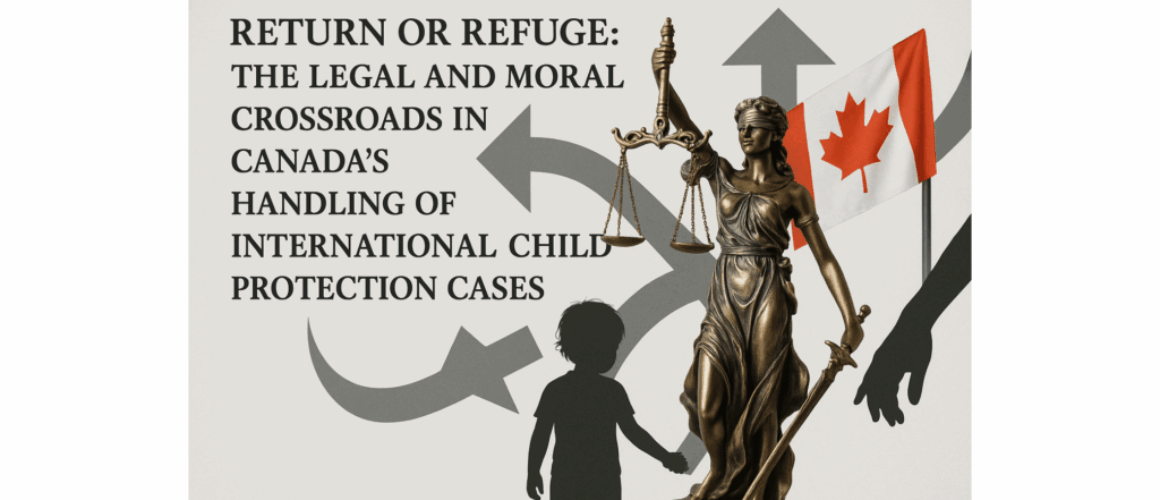Return or Refuge: The Legal and Moral Crossroads in Canada’s Handling of International Child Protection Cases

In a case that has stirred legal and humanitarian debate across the nation, an Ontario judge ruled that a 12-year-old girl must be returned to The Bahamas under the Hague Convention on the Civil Aspects of International Child Abduction — despite her being recently granted refugee status in Canada. The ruling has prompted criticism from child rights advocates, international law experts, and women’s safety organizations, questioning whether justice has truly been served in this scenario.
The child, whose name remains withheld for privacy, was brought to Canada by her mother after escaping what they described as an abusive household. After months of shelter, school enrollment, and psychological care in Ontario, the mother applied for asylum citing systemic failure in The Bahamas to protect victims of domestic abuse. In an unexpected twist, the Canadian Immigration and Refugee Board (IRB) accepted the mother’s claim for the child — only for an Ontario court to override it based on treaty obligations.
Canada at a Legal Crossroads
Canada, being a signatory to the Hague Convention, is obligated to return children taken from their country of habitual residence without the consent of the other parent. However, critics argue that this convention is being applied with undue rigidity, especially in cases where domestic violence, gender-based discrimination, or child abuse are alleged.
“This ruling sets a dangerous precedent,” says Dr. Fiona Allard, professor of international family law at the University of Toronto. “We are putting international diplomacy above child protection. The refugee board deemed the child at risk, yet the civil court effectively reversed that.”
The federal government has so far remained neutral, citing the independence of the judiciary. However, the Ministry of Justice has received formal requests from legal advocacy groups to intervene and propose amendments to how Hague Convention cases are interpreted when refugee status is already granted.
Meanwhile, the mother has filed an emergency appeal with the Federal Court of Canada, arguing that returning the child would violate Section 7 of the Canadian Charter of Rights and Freedoms — the right to life, liberty, and security of the person.
Public and Political Reaction
This case has drawn attention on social media and mainstream media alike. Immigration and refugee advocacy groups have launched petitions urging the federal government to revise its implementation of the Hague Convention, particularly in situations involving alleged abuse or when a child has settled and integrated into Canadian society.
On Parliament Hill, a small but growing group of MPs — including members from the NDP and Bloc Québécois — are calling for legislative reform. A private member’s bill is expected to be introduced next month to require judicial consideration of IRB rulings in Hague-related cases.
Conclusion
The Ontario court’s ruling has ignited a broader conversation about the intersection of international obligations and domestic human rights. While legal treaties ensure order across borders, they cannot remain static in the face of evolving moral and humanitarian standards. For many Canadians watching this case unfold, the question remains: should policy obey papers or protect people?